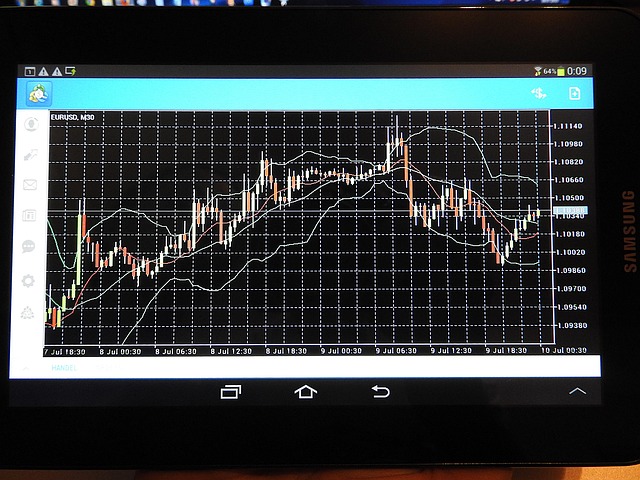Is Gold Forex Trading Halal in Islam in 2025? An In-Depth Islamic Financial Perspective
Author: Jameson Richman Expert
Published On: 2025-10-14
Prepared by Jameson Richman and our team of experts with over a decade of experience in cryptocurrency and digital asset analysis. Learn more about us.
As the global financial landscape continues to evolve rapidly with technological advancements, digital assets, and innovative trading platforms, the question of whether gold forex trading remains permissible (halal) for Muslim traders in 2025 has become increasingly significant. This inquiry is rooted in the intricate principles of Islamic law (Shariah), which emphasize justice, transparency, and ethical conduct in financial dealings. For Muslim traders and investors committed to adhering to Islamic ethical standards, understanding the comprehensive framework governing gold and forex markets is essential. This detailed analysis explores core Islamic financial principles, their application to modern gold and forex trading, scholarly interpretations, and practical guidelines to ensure compliance in 2025—especially in the context of emerging digital financial instruments and cryptocurrencies.

Core Principles of Islamic Finance and Their Application to Gold and Forex Markets
Islamic finance operates under the framework of Shariah, emphasizing fairness, transparency, and avoidance of exploitation. Its fundamental prohibitions—namely riba (interest/usury), gharar (excessive uncertainty), and haram activities—shape permissible financial transactions. When considering gold and forex markets, compliance requires structuring trades that respect these principles. This entails avoiding interest-based mechanisms, excessive speculation, and ambiguous contractual terms. Ensuring transparency, immediate settlement, and the transfer of actual ownership are key factors aligning trading practices with Islamic ethics, thereby enabling Muslims to participate confidently and lawfully in these markets.
Riba (Interest): Clarification and Relevance in Gold and Forex Trading
Riba, the prohibition of interest, is a cornerstone of Islamic economic law. It is considered exploitative and unjust, leading to economic disparity. Historically, concerns in currency and commodity trading centered around deferred payments involving interest, leverage, or refinancing arrangements. Renowned scholars like Sheikh Taqi Usmani clarify that the permissibility of forex and gold transactions depends heavily on their structure. Specifically, transactions involving immediate exchange—known as spot transactions—are permissible provided ownership is transferred instantly and no interest is involved. Conversely, deferred transactions, leverage, or borrowing arrangements that accrue interest are deemed haram. Recognizing this distinction is vital for traders to ensure their activities comply with Shariah and avoid unlawful interest-based mechanisms.
Gharar (Excessive Uncertainty): Its Impact on Halal Trading
Gharar, characterized by excessive ambiguity or uncertainty, is prohibited in Islamic transactions because it leads to unfair advantage and potential dispute. In gold and forex trading, this applies to products with high leverage, complex derivatives, or speculative instruments that lack clarity. To maintain halal standards, traders should prioritize contracts that specify precise quantities, prices, and immediate transfer of ownership, thereby reducing gharar. Engaging in straightforward spot trades, avoiding highly leveraged derivatives, and steering clear of speculative instruments like options or CFDs with uncertain outcomes ensures compliance with Islamic law. This approach fosters fair, transparent, and ethically sound trading practices.
Legal and Shariah Perspectives on Gold Forex Trading in 2025
Contemporary Islamic scholars and financial experts generally agree that gold forex trading can be halal if conducted under specific conditions that adhere to Shariah principles. The primary requirement is that transactions are executed as spot trades—meaning immediate exchange and ownership transfer. Sheikh Taqi Usmani emphasizes that transactions structured as proper spot trades, free from interest, deferment, or excessive speculation, are permissible. This includes ensuring transparency, avoiding leverage, and confirming that ownership rights are transferred at the point of transaction.
Furthermore, compliance involves selecting trading platforms that facilitate immediate settlement and do not promote interest-based leverage or speculative practices. When these criteria are fulfilled, gold forex trading aligns with Islamic legal standards and can be deemed halal in the context of 2025’s evolving financial environment.
Practical Guidelines for Halal Gold Forex Trading in 2025
To ensure your trading activities fully align with Islamic law, consider the following comprehensive guidelines based on scholarly advice and practical experience:
- Choose Shariah-Compliant Trading Platforms: Opt for platforms that explicitly offer spot trading options and exclude leverage, margin trading, or interest-bearing products. Reputable platforms such as Binance (with Islamic accounts), MEXC, Bitget, and Bybit often support features compliant with Shariah. Always verify their compliance status through official endorsements from recognized Islamic scholars or Shariah advisory boards.
- Engage in Immediate Settlement (Spot) Transactions: Conduct trades where ownership of gold or currency is transferred instantly. This aligns with the Islamic requirement for immediate exchange, avoiding deferred payments, interest, and leverage-based speculation. Physical gold purchases or straightforward fiat currency trades are prime examples.
- Avoid Leverage and Margin Trading: Leverage amplifies potential risks and often involves interest payments, which violate Islamic principles. Trading without leverage ensures compliance and promotes responsible risk management—key tenets of Islamic finance.
- Ensure Contract Clarity and Ownership Transfer: Contracts should specify exact quantities, prices, and the transfer of ownership at the point of settlement. Clear contractual terms help minimize gharar and uphold the Islamic standards of honesty, fairness, and transparency.
- Utilize Shariah-Compliant Financial Accounts: Many platforms now offer Islamic trading accounts designed to eliminate interest and speculative elements. These accounts are structured with Islamic scholarly oversight, assisting traders in maintaining Shariah compliance while accessing liquidity and trading features.

Digital Gold and Cryptocurrency: Shariah Perspectives in 2025
The rise of cryptocurrencies and tokenized gold introduces innovative avenues for Islamic traders. Digital assets backed by gold—such as tokenized gold on platforms like MEXC, Bitget, and Bybit—can be compliant if properly structured. Essential considerations include ensuring that these tokens facilitate straightforward, immediate buy/sell transactions, transfer of ownership, and avoid interest, leverage, or excessive speculation.
Blockchain technology and smart contracts enhance transparency and trustworthiness, aligning digital gold tokens with Shariah principles. When these tokens are designed to enable direct ownership transfer without interest or leverage, they can serve as halal alternatives to conventional gold trading. Nevertheless, thorough due diligence, scholarly consultation, and verification of compliance status are critical before engaging in such digital assets.
Expert Opinions and Future Outlook for Halal Gold Forex Trading in 2025
Islamic scholars and financial experts increasingly recognize that, with proper structuring, certain forms of gold and forex trading are compatible with Shariah. The focus remains on ensuring transparency, immediate settlement, and the avoidance of interest and excessive speculation. The development of Islamic-compliant financial products—such as Islamic forex accounts, gold-backed tokens, and Shariah-certified trading platforms—is expected to accelerate, providing Muslim traders with more confidence and diverse options in 2025 and beyond.
Ongoing scholarly research, technological innovations, and regulatory developments will continue to shape the permissible landscape, fostering a more inclusive Islamic financial environment that promotes ethical investing and trading aligned with religious principles.
Conclusion: Ensuring Halal Compliance in Gold Forex Trading in 2025
Based on the consensus of leading Islamic scholars and contemporary jurisprudence, gold forex trading can be considered halal in 2025 if conducted in strict accordance with Islamic principles. The key factors include engaging in spot transactions with immediate ownership transfer, avoiding leverage and interest-based mechanisms, maintaining transparency, and selecting platforms endorsed as Shariah-compliant. Continuous education, consultation with qualified Islamic scholars, and thorough platform evaluation are essential to sustain compliance and prevent inadvertent violations.
As financial markets continue to innovate, new Shariah-compliant products—such as Islamic forex accounts, gold-backed tokens, and blockchain-based trading solutions—will expand opportunities for Muslim investors. Responsible, ethical, and well-informed trading not only fulfills religious obligations but also promotes financial stability and spiritual integrity in 2025 and beyond.